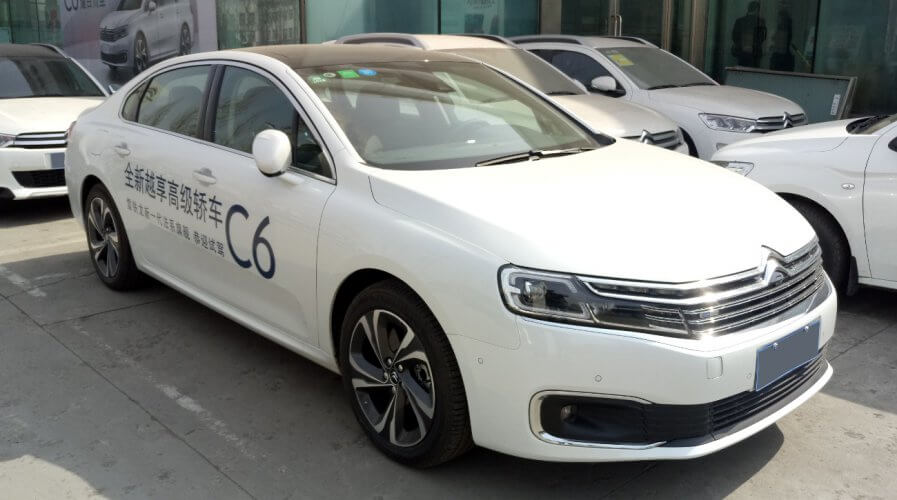
Banma has tied up with Dongfeng Peugeot Citroen. (Image for representative purposes only) Source: Wikimedia
Can AliOS power 6m cars in China by 2023?
WHEN you think of the innovations in automotive technologies, you tend to think of autonomous cars and the luxury of never having to touch the steering wheel again.
However, with most companies and governments still feeling their way around the technology, it might take up to 5 years for driverless cars to hit the roads.
But that doesn’t mean the cars that are set to hit the roads next year aren’t exciting. Sure, they’re not the AI-powered concept vehicles we’ve been promised, but they’re internet-cars and are part of the upcoming internet of things IoT revolution.
These are the cars that will offer navigation, in-car entertainment, and value-added services such as car maintenance information to drivers and passengers through touchscreens and smartphones.
In fact, connected cars will serve as an extension to smart homes and bring the connected, IoT-experience to life. And China will be at the forefront of this innovation, again.
Funded by domestic internet giant Alibaba, an internet car startup called Banma Network Technologies has launched AliOS, its in-car operating systems, aimed at powering the internet cars of tomorrow.
Through a partnership with Dongfeng Peugeot Citroen, the company will launch the first internet car in September and hopes to make a dent in the country’s automotive market.
Being the largest in the world with production of passenger cars reaching 24.8 million units last year, China is also a huge opportunity for Banma if it can prove the value of AliOS to automakers.
In fact, the company has factored the statistics into its projections and expects its AliOS to power at least 6 million cars by 2023.
According to local media, connected car penetration in Singapore is expected to hit 46.2 percent in 2022 and the revenue in the connected car market is forecast to reach US$66 million. By 2025, the connected car market is expected to reach US$219 billion.
ResearchAndMarkets’ study suggests that the constant growth of connected car devices can be accredited to the precise and proven benefits of the system considering the vehicle safety.
“The Asia-Pacific connected car devices market is on an upsurging trend owing to the presence of developing countries such as China and India. The adoption rate of the connected car devices that includes Driver Assistance System and Telematics is anticipated to fuel the demand of connected car devices in the Asia-Pacific region,” said the study.
READ MORE
- Ethical AI: The renewed importance of safeguarding data and customer privacy in Generative AI applications
- How Japan balances AI-driven opportunities with cybersecurity needs
- Deploying SASE: Benchmarking your approach
- Insurance everywhere all at once: the digital transformation of the APAC insurance industry
- Google parent Alphabet eyes HubSpot: A potential acquisition shaping the future of CRM




